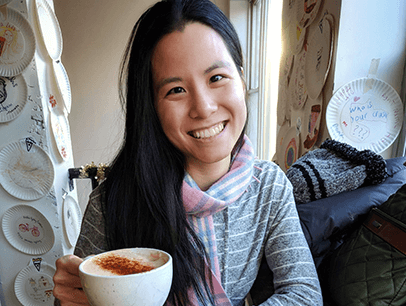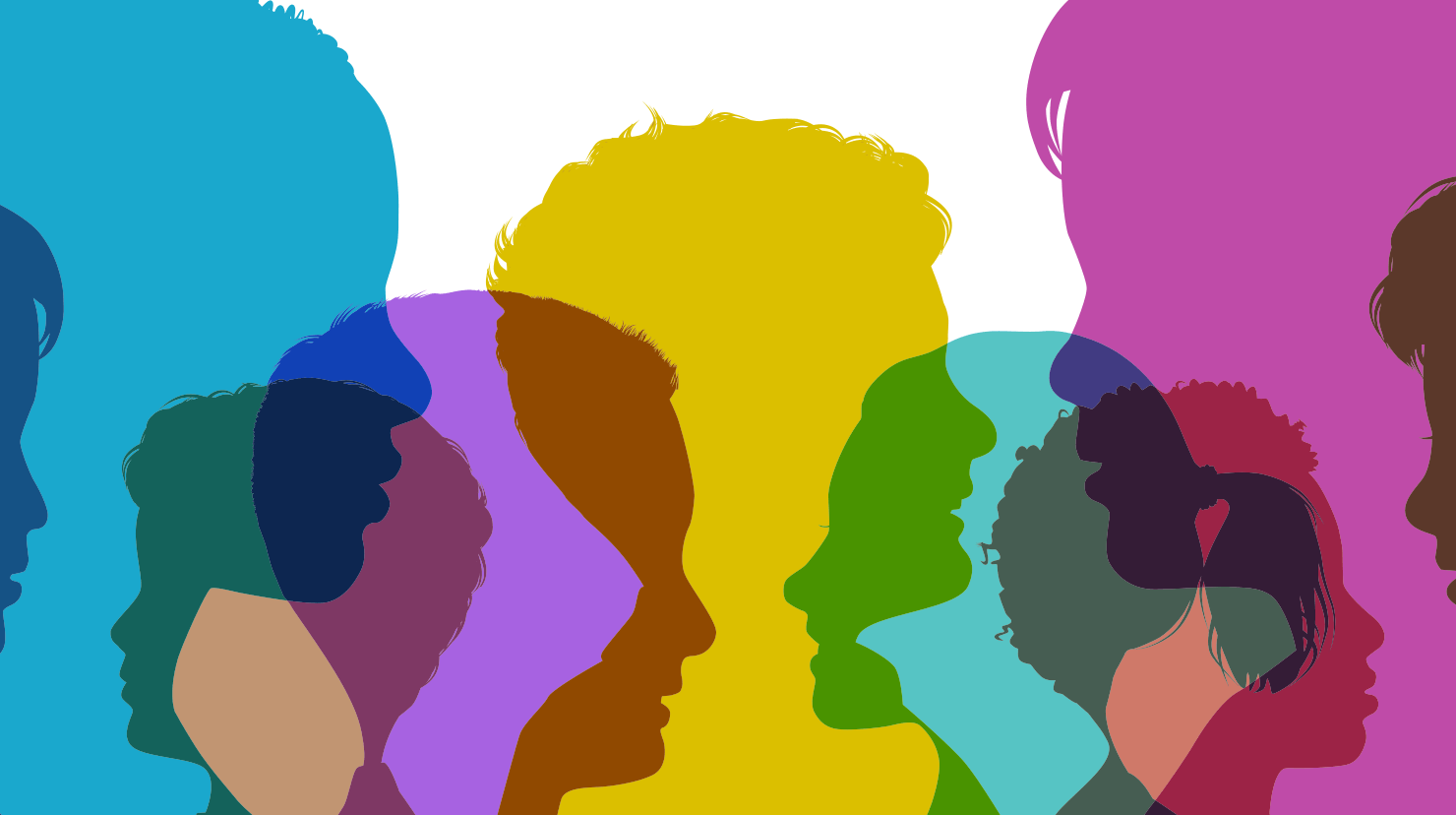As part of the first “digital generation,” most teenagers are fairly comfortable communicating via texting and social media. Yet this doesn’t mean they are necessarily comfortable speaking up in person or online. Like generations before them, many young people today still struggle with public speaking.
Max Hu, 17, is founder and president of a youth public speaking group in Richmond Hill, Ontario, Canada, that evolved from a Toastmasters youth Gavel Club—a club geared to those under 18. He says communication anxiety peaked among teenagers attending “Zoom school” during the pandemic.

“I had friends who would have anxiety attacks just turning on their camera. It shows how unprepared youth are,” says Max. “We’re not given opportunities to specifically work on our communication skills.”
Toastmasters aims to fill that educational gap with two programs for the under 18-set: youth Gavel Clubs and the Youth Leadership Program (YLP).
“I’ve been influenced by Toastmasters my entire life.”
—Max HuThe YLP is a workshop typically consisting of eight one- to two-hour sessions and is sponsored either by an individual Toastmasters club or an organization such as a school. (Likewise, Gavel Clubs are hosted by an organization or regular Toastmasters club.) Toastmasters members serve as coordinators of the YLP, which follows the format of a typical club meeting and has the same intended outcome as the Toastmasters experience: to teach participants to speak effectively and persuasively in both prepared and impromptu scenarios and learn to evaluate and give feedback.
The benefits of developing comfort with public speaking are widely documented—and well known to the typical Toastmaster. Improving communication skills while you’re still relatively young can lead to improved academic performance, increased persuasive and listening skills, less fear, and increased self-esteem. Eventually that can result in a better chance of social and professional success.
Gavaliers Gain Quality Experience
Unlike the short-term YLP, Gavel Clubs offer a recurring Toastmasters-like experience for groups otherwise ineligible for club charter, whether due to member age, club location, or another factor. “Gavaliers” use the same type of structure and protocols as used in regular Toastmasters club meetings.
Srikumar Pai, DTM, a longtime Toastmaster from Kerala, Cochin, India, was living in Muscat, Oman, when he decided to host a YLP for his friends’ children. At the end of the workshop, the parents surrounded him. “’What is next?’” he said they asked. “’You gave them a chance to speak but how are you going to help them practice? Move forward?’ They were very smart.”
He did some research and started a Gavel Club. One club became two and quickly grew to 34 youth Gavel Clubs. With the structure and practice provided by the Toastmasters program, the young members flourished, developing confidence as speakers and evaluators and embracing their new responsibilities as club leaders. Young people actually want opportunities to be face-to-face with their peers, Pai says. “They have a lot of distraction. If you give them something like a Gavel Club, their full concentration is there,” he notes.
Something even more surprising happened as a result of the Gavel Clubs: Parents watched their children improve and soon new Toastmasters clubs were born to give the adults the same experience. Today, Muscat Family Toastmasters offers a 3-in-1 experience, with concurrent club meetings in adjoining rooms for parents, teenagers, and preteens. (The teens and preteens are part of the Oman Kids Gavel Club.)
Gavaliers Get Their Own Championship
In January, Pai helped organize an event billed as the inaugural Global Youth Gavaliers World Championship, a virtual speech contest involving 125 Gavel Clubs from Canada to Australia. In her winning speech, Afreen Macksood, 13, made light of the Zoom experience for kids stuck at home during this time, in contrast to how seriously adults are treating it. Afreen only joined her school’s club, BPS Gavel Club in Doha, Qatar, weeks before the contest. But she is very familiar with the Toastmasters method: For the last four years, she has been a speech practice partner for her mother, Nishana Macksood, a member of CA Toastmasters in Doha.
“She would ask me to evaluate her, even though I used to know nothing much about public speaking,” Afreen says. “I would have a book and pencil with me, writing down words I didn’t know while my mom spoke.”
 Afreen Macksood (left), 13, won a speaking championship involving members of 125 youth Gavel Clubs. Her mother, Nishana (right), is a Toastmaster in Doha, Qatar.
Afreen Macksood (left), 13, won a speaking championship involving members of 125 youth Gavel Clubs. Her mother, Nishana (right), is a Toastmaster in Doha, Qatar.For all its merits as a connector across the continents, Afreen finds digital communication very restrictive. Facial expressions, group discussions, and talking during class breaks all disappeared during classes over Zoom. Her teachers even disabled the chat function during online classes because too many students were using it. “We’re missing out on our friends’ lives,” she says.
Of the 10 most downloaded apps in 2020, six were focused on oral communication. Even TikTok is no longer limited to learning new viral dances and sharing memes; it now allows videos to be up to three minutes long, the same length as speech evaluations and Social Speeches in the Pathways learning experience.
Max Hu, the Canadian youth speech group founder, says that young people have plenty of opportunity and drive to use their voices for change, such as protesting against racial injustice or advocating for education reform, but they often don’t have the confidence or the competence.
“There’s a lot of these very cool ideas but I feel so many of these ideas are overshadowed because students are afraid to speak out—because they are comparing themselves to those two or three students who do speak out,” he says. The teen sees his peers give up before they even try, because they don’t want to be judged or make a mistake that is captured on video for perpetuity.
This year the Global Youth Gavaliers World Championship debuted. The virtual speech contest involved 125 Gavel Clubs from Canada to Australia.
One of the most effective tools, he says, is being around others who are trying to improve the same skills as you. As a child, he struggled with stuttering and had to work closely with a speech therapist. His mother, Joyce Lang, DTM, a member of Advanced Speakers on the Hill in Richmond Hill, Ontario, would invite Max to her Toastmasters meetings to see adults improving their communication. Four years ago, while participating in a YLP, he says something clicked for him and he hasn’t looked back.
Since then he has formed a public speaking group, has spoken at school events in front of 800 classmates, and was elected as a class leader this year. In fact, Max, who wants to study computer science at university, has been working with some classmates to develop a phone app, called Fearless, that detects spoken filler words, the bane of all Toastmasters. “I’ve been influenced by Toastmasters my entire life,” he says.
Lifelong Learning
Another unexpected consequence of an early exposure to public speaking is the chance for it to become a lifelong pursuit. Kareena Hassan was a self-described “shy bookworm” as a young teen when her parents signed her up for a YLP being hosted by a family friend. She then took part in a Gavel Club and found that she enjoyed it more the more she went.
 Kareena Hassan
Kareena Hassan“I think it was something that kind of pushed me out of my comfort zone,” Hassan says. “It helped me with my confidence and with my interactions with people around me, with my family and my peers.”
During her first year at university, Hassan had to deliver a mock business proposal in a class presentation. “I remember my professor commenting that I had certain soft skills that he wasn’t expecting,” she says. He wasn’t used to first-year students being so well prepared to give speeches.
“I think [the youth Gavel Club] was something that kind of pushed me out of my comfort zone. It helped me with my confidence and with my interactions with people around me, with my family and my peers.”
—Kareena HassanAfter graduation, while working in her first job, she realized that her ability to network and connect with work peers wasn’t what it should be. “I could just tell that some of those soft skills needed some fine-tuning,” she says. She instinctively knew she needed to return to Toastmasters. In 2019, she not only joined Feel Good Toastmasters in Richmond Hill, but she also became a coordinator of the Speak to Lead Gavel Club. Today, she helps teenagers whose reluctance to speak is intimately familiar. “I was in your shoes once,” she assures them.
“At the end of the day, it’s a life skill and a program that is for everyone,” Hassan says. “I can’t think of one person who wouldn’t benefit.”
Emily Sachs, DTM is a freelance writer in Brooklyn, New York. She is the Immediate Past District 119 Director and is a regular contributor to the Toastmaster magazine.
Related Articles

Presentation Skills
Students Face Feedback in a Fun Way

Personal Growth
Youth Boost

Communication




 YLP in India Reaches Hundreds
YLP in India Reaches Hundreds
